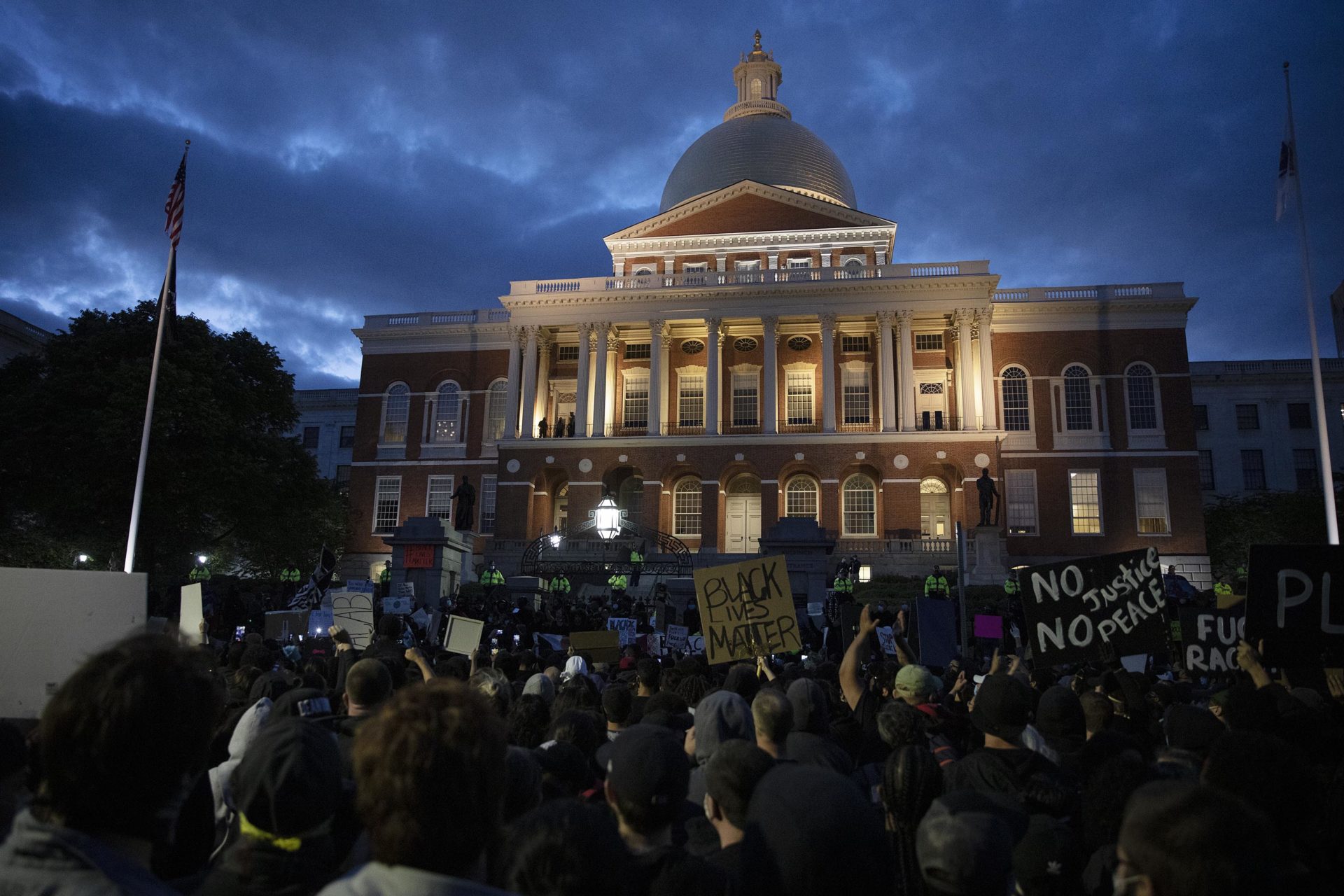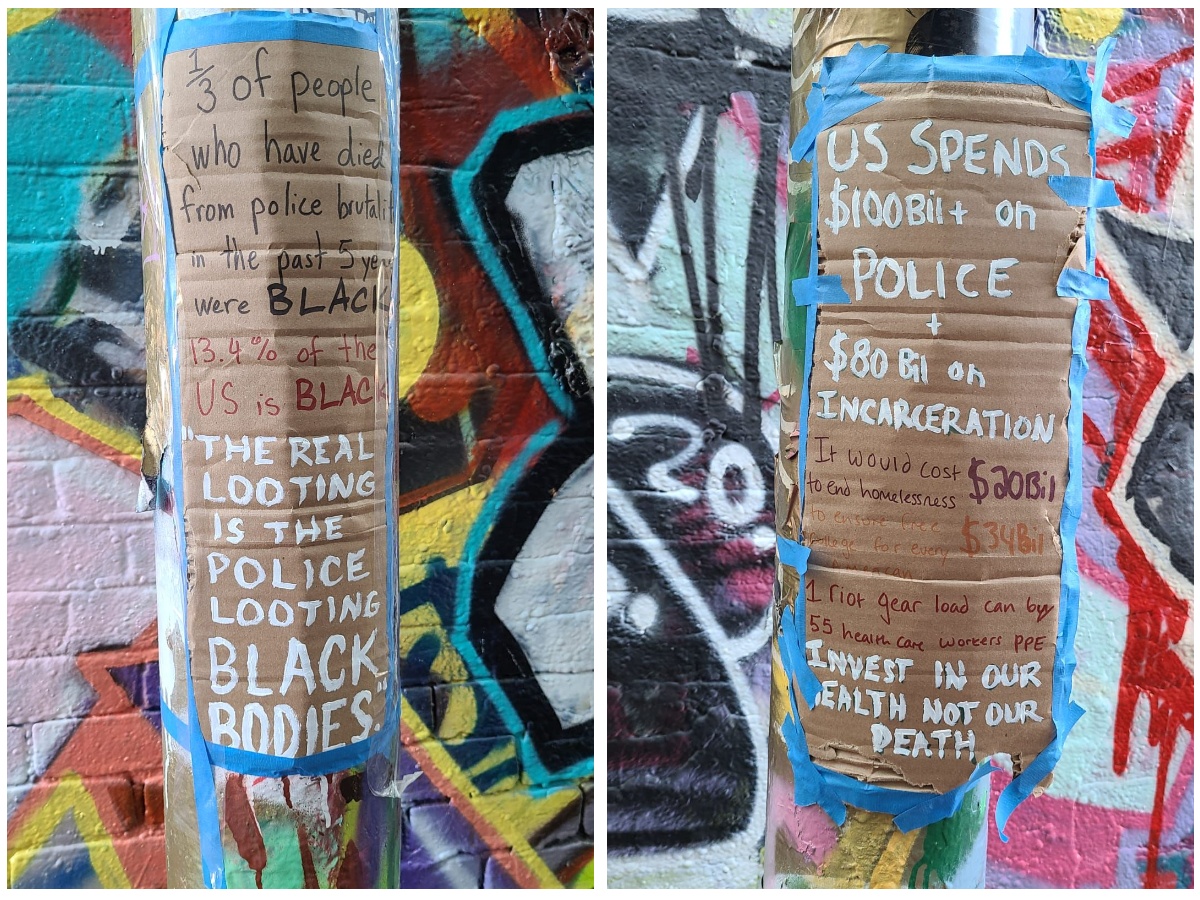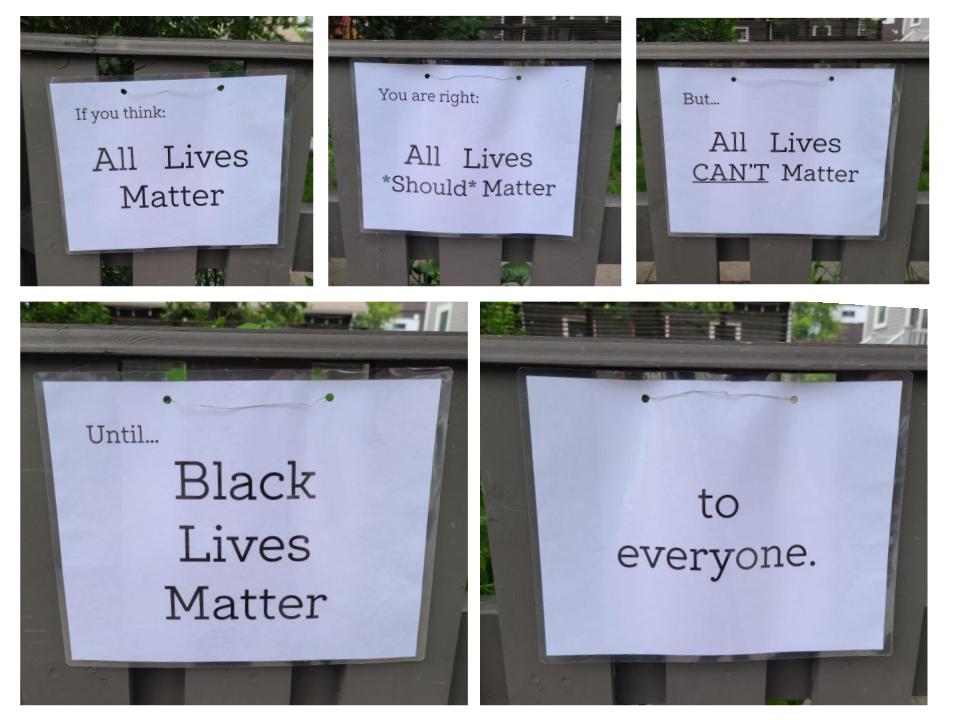
(All across the United States and the world, people have demonstrated in the streets to remember the victims of racism and police brutality and to protest racial injustice. Thousands gathered at the Massachusetts State House for a Black Lives Matter protest on Monday June 1, 2020. Photo by Robin Lubbock/WBUR.)
Systemic racism is an affront and an attack on global justice.* The recent murders of George Floyd, Breonna Taylor, Tony McDade, Sean Reed, and Ahmaud Arbery are a reminder that the U.S. has a long history of perpetual racial injustice that continues to marginalize and take away Black lives. It is not the first time that the U.S. has seen and been reminded of the prevailing presence of racial injustice. However, this is not just a domestic issue. The multiple international protests that occurred in the past few weeks speak volumes on the truth that racial justice is also a global fight.
BNID, in connecting Boston and the world to support global justice, has a commitment to make sure that Black lives are valued at every level and sector in society. We stand, support, and are present with communities of color. We encourage our non-Black readers and partners to engage with the stories and experiences of Black communities where support, investment, and attention can be given to organizations, policies, and initiatives fighting for equity and justice.
As BNID’s Summer interns this year, the recent events of racial violence and injustice compelled us to think about our roles and how we can amplify solutions to these systemic issues. Below, we feature some organizations in the Boston area fighting to address racial inequity and injustice that we believe our community should support and learn more about.

(Protest signs in Central Square)
- Anti-Racism Education for Social Change (Syrga Kanatbek Kyzy). I have identified several organizations in the Boston area that use education and reflection to support movements for racial justice. I have always been passionate about education. I believe education is a powerful tool that can be used against injustice anywhere in the world. My very first choice is the Anti-Racism Collaborative (ARC). It is a young organization with a goal of increasing the overall accessibility and influence of grassroot and activist organizing in anti-oppression education. Their programs blend pedagogical approaches to anti-racism and anti-oppression education with racial justice practices. The size of an organization is not always important to make a difference. Because everything starts small. Personally, I like their vision and work. What ARC does in our community is necessary and crucial. Another organization I learned of from a colleague is the Interaction Institute for Social Change (IISC). The organization holds a similar vision, building collaborative capacity in individuals, organizations, and networks working for social justice and racial equity. The organization has grown over the past 25 years: from a start-up with a staff of two to an organization with offices in Boston and Belfast, Ireland reaching people not only in the U.S. but in the world as well. Unfortunately, the history and present challenges of racial injustice is not only specific to the United States, but many places around the world. This is why working internationally is as important as working home.
Programs based in Black communities (Syrga Kanatbek Kyzy). I met the founder and the president of the Base, Robert Lewis Jr. when he came to our class at the Heller School to talk about his work. The Base works to empower student-athletes from Boston’s predominantly Black and Brown neighborhoods. They provide exceptional athletic training and competition with education and career resources to empower student-athletes of color to achieve their full potential both on and off the field. The organization recognized disadvantages most urban youth face and found a creative way to support them. This unique approach stood out to me from other organizations in the field I have seen. Also, the Base collaborates with other institutions that are committed to changing minds, lives, and the status quo, across the public, private & nonprofit sectors, higher education, the community & beyond. I hope not only national institutions will learn from the Base but many international actors get inspiration to address injustice in new ways.
Organizing for structural change here in Boston (Sharon Rajadurai). The Boston Ujima Project is a non-profit focused on solving challenges facing Black, indigenous, and communities of color in Boston like gentrification, poverty, homelessness, lack of food access, unemployment, and lack of healthcare. The Ujima approach includes strategies like anchor institution advocacy, arts and cultural organizing, creative consumer organizing, good business alliance, shared decision making, a democratic Ujima fund, financial and political education, grassroots organizing, and technical assistance. Ujima is a Swahili word meaning collective work and responsibility where Boston’s working class residents of color can come together and support each other, such as through a community controlled capital fund where investments can be made to the community’s needs. In April of this year, The Ujima Project alongside some other organizations in a coalition established the Business Equity COVID-19 Emergency Fund to help keep minority-owned businesses alive through the pandemic. With the recent horrific killing of George Floyd and the public outcry for justice for Black lives since then, many Boston-based organizations, like The Ujima Project, are actively seeking to uplift Black and other minority communities starting at the local level.
Addressing the effects of race in global public health (Jeromel Dela Rosa Lara). Around the world, including Boston, chapters of the Campaign Against Racism (CAR) have formed. The Campaign aims to dismantle structural racism and its effects on health around the world by supporting local actions, efforts, and networks which aim to improve the health and lives of those most affected by racism. There are currently 23 chapters across 10 countries, and they are all part of the Social Medicine Consortium (SMC). SMC is a global initiative that aims to amplify in the healthcare profession the social determinants of health where injustices, like racism, are viewed as a public health crisis. Boston’s CAR chapter was just recently formed in 2019, and they are seeking new members and public support. The Campaign Against Racism was conceived by past president of the American Public Health Association Dr. Camara Phyllis Jones in 2017. She is a physician, epidemiologist, and a civil rights activist. She was a 2019-2020 Evelyn Green Davis Fellow at Harvard University’s Radcliffe Institute for Advanced Study as well as a Senior Fellow and Adjunct Associate Professor in the Morehouse School of Medicine. Her work, such as in forming CAR as well as guiding the Boston CAR chapter, is part of her lifelong project to create Tools for a National Campaign Against Racism where individuals and groups learn to identify, name, and address racism. I have worked as one of Dr. Jones’ research assistants during her fellowship at the Radcliffe Institute, and this was how I was introduced to the Campaign Against Racism. Working for Dr. Jones and becoming a member of the Boston CAR chapter, I saw how relevant and important collective effort is in addressing racial injustices where organizations and people from various sectors from medicine, public health to government have to work together.
With BNID’s purpose to support organizations and initiatives that address global issues of injustice, let us remind ourselves of the prevalence of racism that still exists today. At this moment, we as organizations, institutions, partners, and individuals are all called to commit ourselves to campaigns against racism at the local, national, and global level.

(Signs on a fence in Somerville)
––––––––––
*Racism, according to epidemiologist Dr. Camara Phyllis Jones, is a “system of structuring opportunity and assigning value value based on the social interpretation of how one looks (which is what we call “race”), that unfairly disadvantages some individuals and communities, unfairly advantages other individuals and communities, and saps the strength of the whole society through the waste of human resources.”
